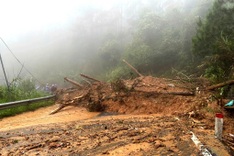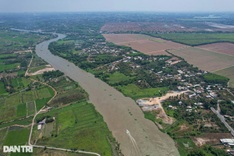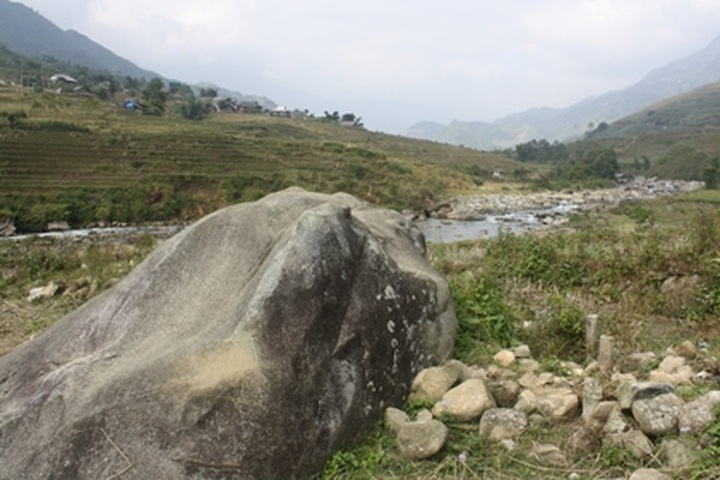
The field covers about eight square kilometres of the Muong Hoa Valley, and discovered by Russian-French archaeologist Glubev in 1925. It consists of around 200 large boulders. Many of these rocks have been carved with patterns, staircases, pictures and writing.
Many archaeologists believe that, the patterns are maps made by Mong ethnic minority people. However there are different explanations about these shapes and, to date, there is no consensus among scientists as to their significance or meaning.
In October 1994, the site, which is thousands years old, was recognised as a national historic relic by the Ministry of Culture and Information, now known as the Ministry of Culture, Sports and Tourism, and has become a tourist attraction.
It is this tourism, ironically that has been destroying the patterns on the rocks.
The only protection in many areas is only a thin and damaged fence. Children play on the rocks, and visitors walk on them to get a closer look or take photos. Some people even carve out vulgarities.
The cement walls which protect the more remote areas are in a state of ruin. Locals have destroyed them in order to take the iron rebar for sales, and many children do continue the destruction just for fun.
Visitors who buy tickets to see the site are often disappointed in the sad state it is in.
Travellers have to buy tickets to visit the place, but what they see is just their deterioration. Nevertheless, local authorities have not yet taken any actions to deal with the violations.
There are also no signs which instruct visitors on acceptable behaviour.
Nguyen Thi Van Anh, a tourist from Hanoi, said, “I've always heard about these ancient stones in Sapa, especially special mysterious patterns and shapes on them. However, when actually got here, I was disappointed at the way such a valuable place has been managed. Both the elements and people have taken their toll.”
Chairman of Sapa District, Le Duc Luan, said, “At one time the Lao Cai Department of Culture, Sports and Tourism had a project to preserve the stones. They also built a building for displaying the rocks and constructed fences. But the project was left done half-finished. Currently, the rocks and their fences surrounding them are still being destroyed by the behaviour of locals and tourists, particularly children. The district plans to carry out a project to build roads to the stone area, new fences hire a security team to protect it. The project, will cost around VND2 billion (USD95,238), and is expected to be completed next year.”
Some photos of the stones:

Patterns in the display building
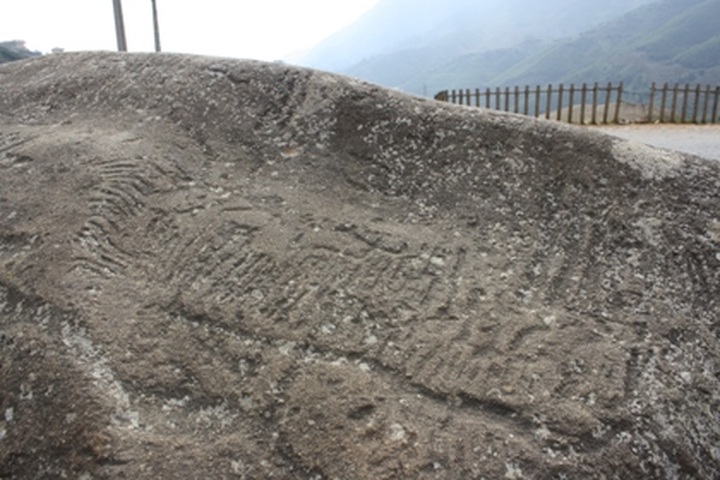
Some of the patterns
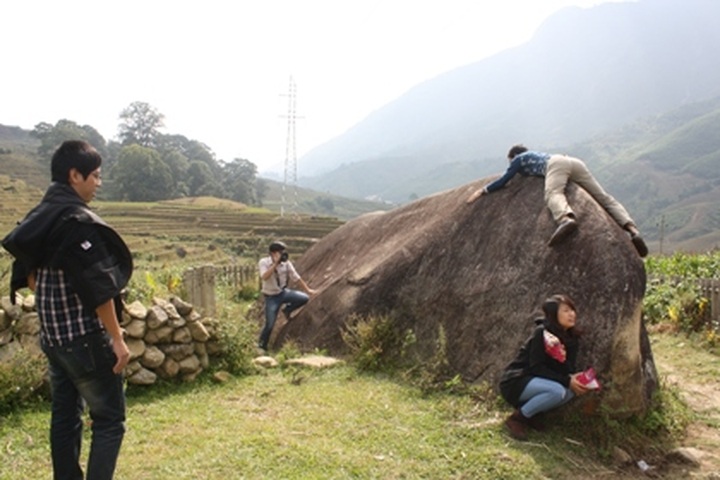
Visitors climb on the rock
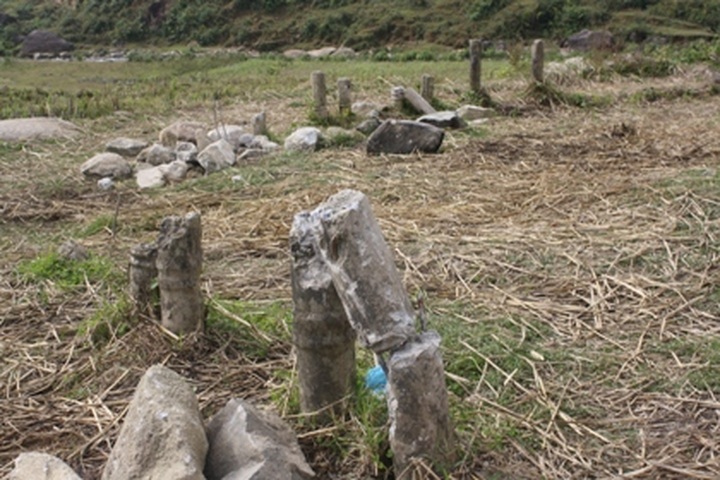
Lack of care
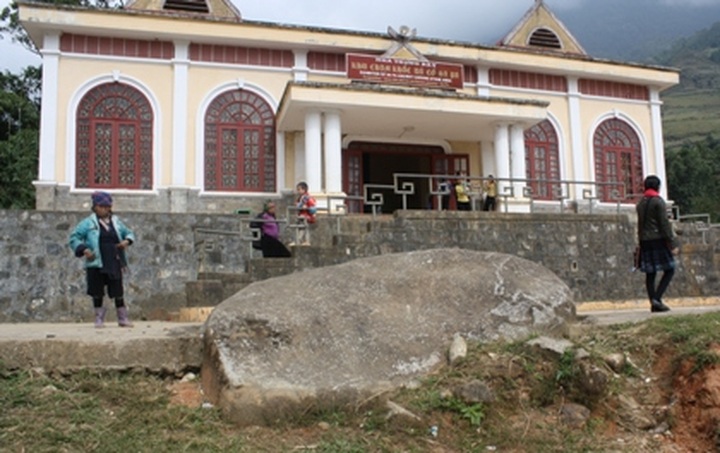
A rock before the display house

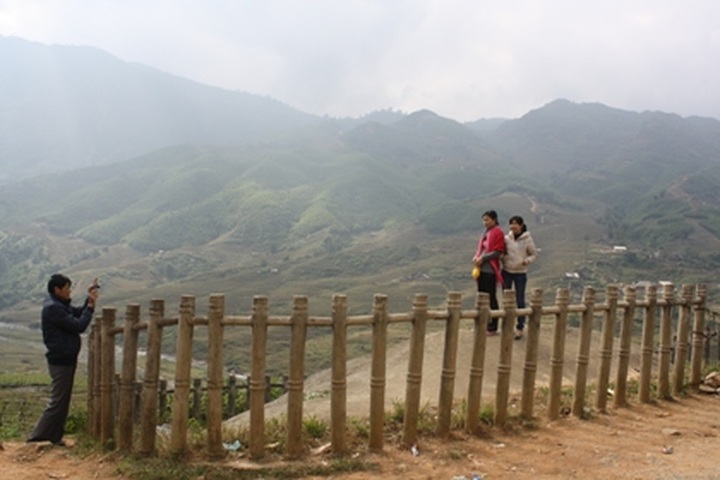
Few rocks have fences around them


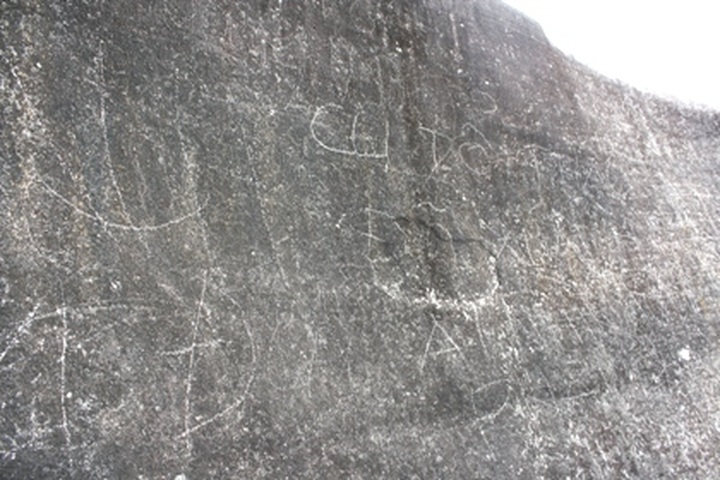
Graffiti

A rare rock with its original patterns

Bad behaviour destroying a treasure

Useless fences













